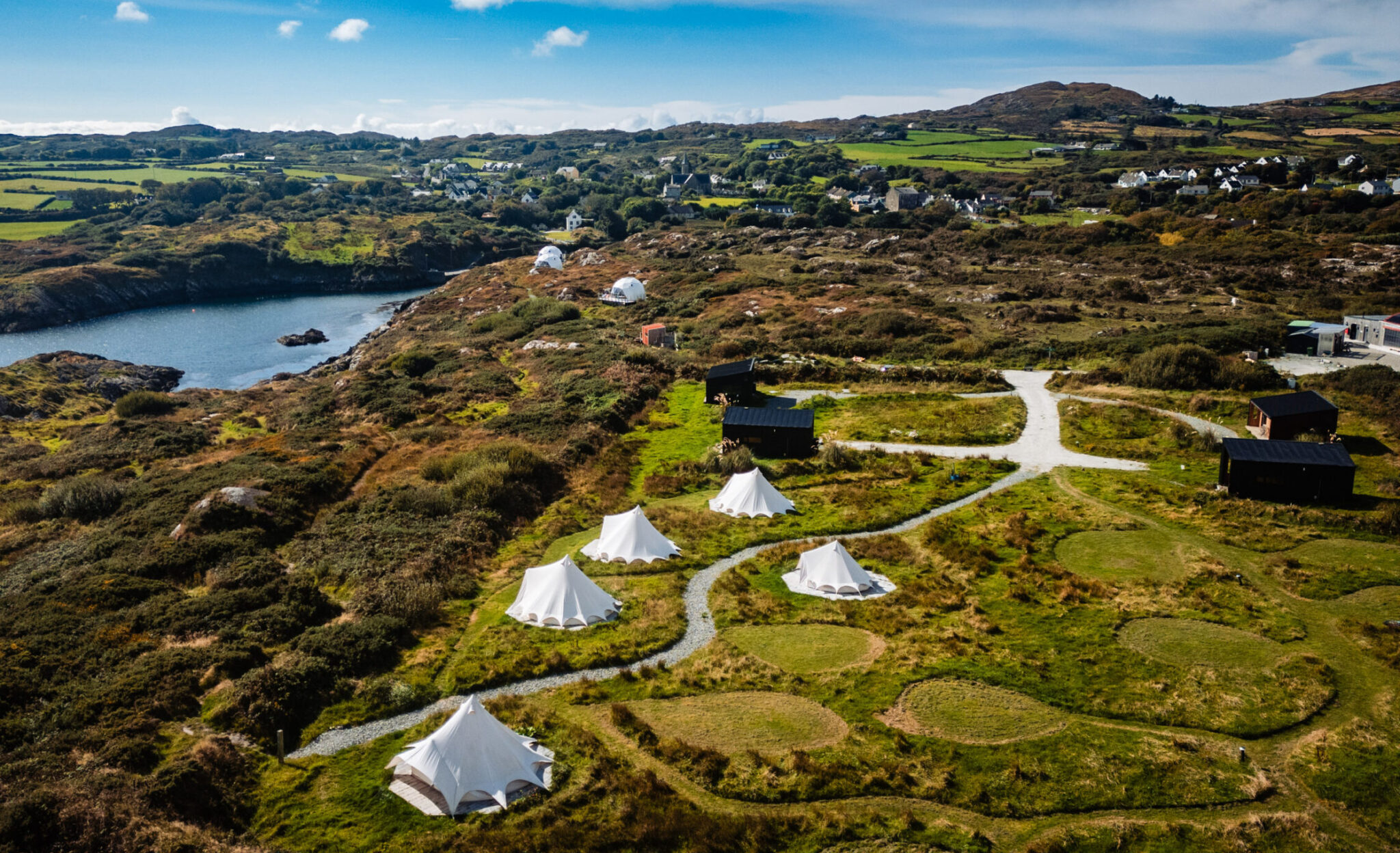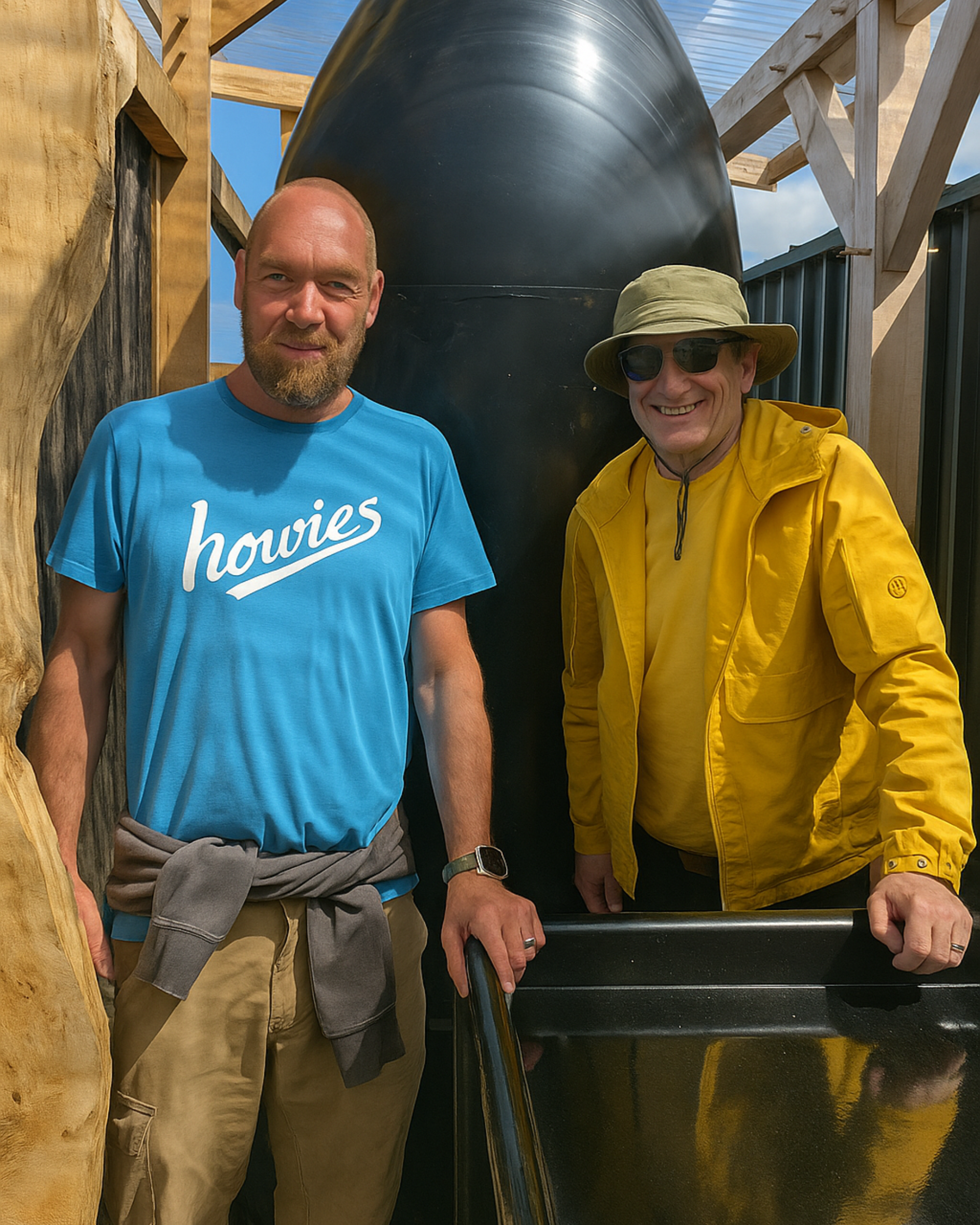Goleen Harbour is an award-winning eco resort set in the stunning surroundings of West Cork. The eco glamping and camping experience run by Matt Mills and Melanie Furniss provides premium eco activity and accommodation with geo-domes, eco-cabins, camping and glamping. Goleen Harbour has the protection of the environment and its biodiversity at its core. The eco resort is strongly embedded in the local community as well as accommodating visitors from around the world.
THE CHALLENGE
With the protection of the environment at the heart of Goleen Harbour, sustainability is a priority for operations at the eco resort, with a positive impact for staff, visitors and the wider community. Management of unavoidable food waste presented a challenge while the opportunity to reuse and recycle this food waste, turning it into a valuable resource fits in harmony with the mission and values of Goleen Harbour.
With MyGug, food waste is turned to renewable energy supporting sustainability at this spectacular ecotourism destination.

SOLUTION
Circularity at work – resilient micro circular economies – food waste is converted to energy for cooking and growing.
Goleen Harbour is generating small-scale biogas for cooking and liquid fertiliser for growing, from unavoidable food waste with a MyGug digester.
Matt Mills of Goleen Harbour, an Eco-Entrepreneur, Designer, Farmer and Project Manager, says: “MyGug is a great fit for us, addressing food waste in a sustainable way and at the same time providing a supply of clean renewable energy for use on-site. It’s a great demonstrator for our camping guests as they can cook with gas produced from their own food waste! A circular food economy for Goleen Harbour.”
It’s sustainability first at Goleen Harbour for a positive environmental and social impact, in harmony with a location rich in biodiversity and natural beauty.

Key Benefits
Measurable Outcomes
The unit can treat up to 7 tonnes of food waste per year (up to 18kg of food waste per day).
which produces up to 300L of biogas per day
(up to 1.5 - 2 hours cooking time per day).